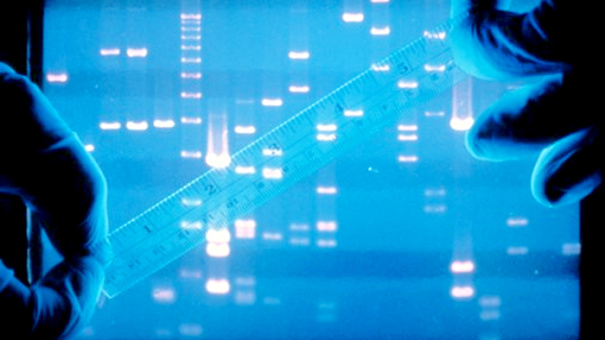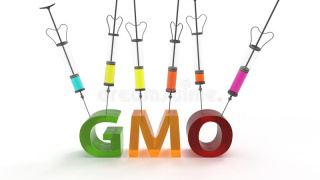Environmentalists are concerned: US military launch "gene drive"
Gene drive is a process in which any necessary genes quickly spread over a population of any living beings, being specially programmed by genetic engineers
More than a thousand e-mails from the correspondence of military departments on financing the development of the newest technology for the creation of genetically modified organisms (GMOs) - gene drive - were published by public organizations of the United States upon request on the basis of the Law on Freedom of Information.
Unexpectedly, it turned out that the Office of Advanced Research Projects of the US Department of Defense (DARPA) is now the main customer of the development of this technology. This was reported by the Friends of the Earth organization, the United States. DARPA spent $ 100 million on a gene drive project. Earlier it was reported that for this purpose funds were allocated for a third less.
According to reports, this agency is the largest sponsor of the development of gene drive technology in the world. It is obvious to the public that such a project will be classified, and its exceptionally peaceful appointment causes many questions.
A gene drive is a very powerful and dangerous new technology and a potential biological weapon that can have devastating consequences for the preservation of peace, food security and the environment, especially if it is used in an undesirable manner.
One and a half million dollars for the "green light" to gene drive
Public organizations received information that the Bill and Melinda Gates Foundation spent $ 1.6 million on a PR campaign to promote gene drive technology in the UN structures. With this money, a private PR agency Emerging Ag organized 65 experts to participate in the consultation process. Among them was a high-ranking official from the Gates Foundation and representatives of the DARPA leadership. Also on this money, the agency helped prevent the introduction of an international moratorium on the use of gene drive in nature.
In December 2016, 170 major international public and scientific organizations and experts demanded that the UN introduce a moratorium on gene drive.
However, the moratorium was not adopted, and widespread use of gene drive in nature can occur at any time. Of course, specialists involved with Emerging Ag, while protecting this technology at the UN, did not claim that they have a conflict of interest or how their opinion was influenced by the so-called consultants paid by the Gates Foundation.
Supporters of technology believe that even a temporary ban on the use of this technology will scare off sponsors and make research difficult. Many of them sighed with relief when the UN rejected a proposal on the moratorium.
How can a gene drive be used?
Defenders of gene drive say that this method will be very effective in combating the "unnecessary" properties of biological species.
So they plan to defeat one of the most terrible modern diseases - malaria - through the modification of its distributors - mosquitoes. There are several ways to combat malaria, for example, mosquito nets with insecticides, effective preventive and curative drugs. However, most homes of poor Africans and South Americans, who mostly suffer from this calamity, do not have such nets, and many Africans still do not receive these drugs because of their high cost or lack of information.
However, genetic engineers believe that it is gene intervention that will be the most effective way to combat malaria. Work on transgenic, antimalarial mosquitoes has been going on for a long time. Geneticists created GM mosquitoes with two copies of an antimalarial gene (one on each of the two chromosomes). But it is known that only one of the chromosomes is always inherited by the offspring. Further, the mosquito, which has one mutant and one normal chromosome, will transmit it to about half of the next generation of mosquitoes. The rest, according to the law of nature, will prefer the healthy genes of a wild mosquito. As a result, "anti-malarial" mosquitoes will still disappear from the population.
In order that the gene-killer of malaria does not disappear from the population, and it is supposed to use the gene drive. The technology is to copy the desired gene from one chromosome to the second one in some way. Then the organism, which had only one copy of the miracle gene, will receive two copies of it and give it to its descendants with a 100% probability. So the mutation will spread to all mosquitoes, and they can stop carrying malaria. There are ideas for sterilizing malarial mosquitoes.
But the application of this technology raises many questions because once changing a malarial mosquito or some other species, humanity can not return this change back, - environmentalists explain. How will the modification of this or that species affect the ecosystem? There is no clear answer to this question either. It is necessary to continue to introduce other, less radical ways of solving such problems.
Even if there is a potential positive effect on human health, any use of such a powerful technology should be carried out while respecting the highest standards of transparency and openness. Sadly, in this case it is not so. The release of such GM mosquitoes into the environment of African countries is outrageous and causes serious concern,
- said Mariam Mayet, executive director of the African Biodiversity Center.
What other secrets of the military were revealed by environmentalists?
Public organizations in the United States found and published data that shed light on a few more interesting points.
In the US there is a secret group JASON, which includes military specialists. The group conducted two closed studies of genome and gene drive editing technologies commissioned by the US government. A high-level manager of the well-known multinational company GM-seeds and chemicals Monsanto (which this year was included in the largest biotechnological and medical concern Bayer) took part in the organization of the works. As reported in the Friends of the Earth, USA, these studies "were devoted to the use of gene drive for hostile purposes and the application of these technologies in agriculture."
It has also become known that it is DARPA that finances a group of authoritative British scientists who are working on the application of gene drive in the population of malarial mosquitoes in a number of areas of Africa. This fact was previously hidden from the public.
The data received by public organizations also indicated that DARPA plans to use gene drive technology to change the genome of mammals, in particular mice, and it will be used to combat pests of agriculture in at least New Zealand and Australia.
From the correspondence of high-ranking military officials it follows that, in addition to laboratory studies, two leading drive teams - the British group Target Malaria ("Malaria at sight") and a group of scientists GBIRD (Genetic Biocontrol over rodent infestation) from North Carolina (USA) in other areas. Specific sites have already been selected for field testing of genetically modified living creatures in Australia, New Zealand, Burkina Faso, Uganda, Mali and Ghana. A public relations campaign has also been developed for representatives of the authorities and the local community of these countries.
Environmental organizations say they will continue to call for a moratorium on the use of gene drive. They believe that an independent evaluation of this new technology, not paid by the US military, is necessary. Activists and independent experts will discuss their plans at the largest thematic forum, the 9th European Conference of GMO Free Regions, which will be held in September in Berlin, Germany.









